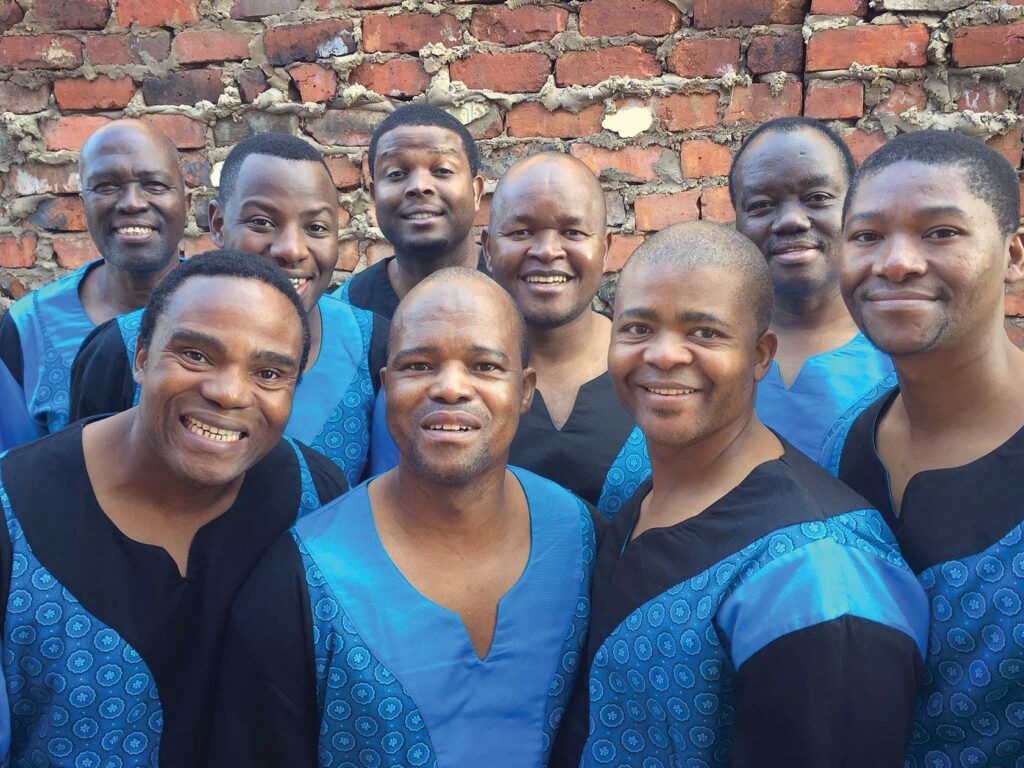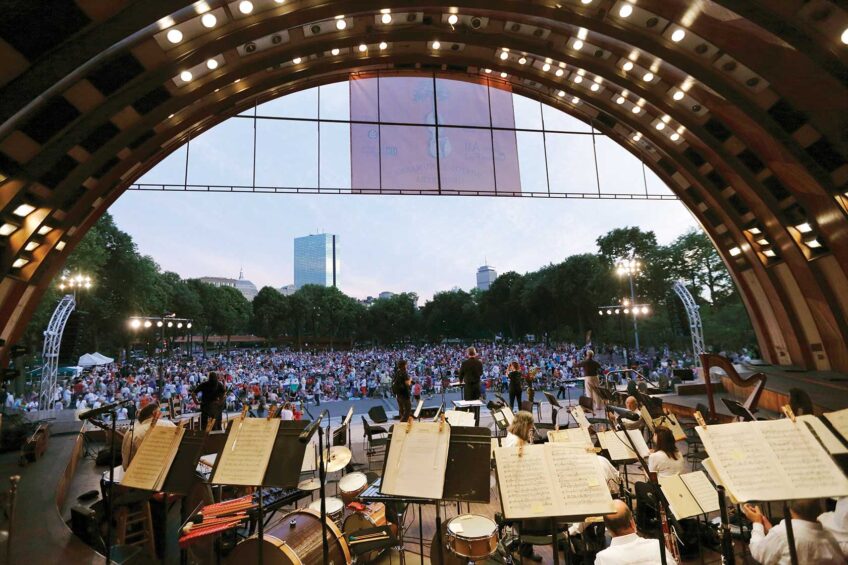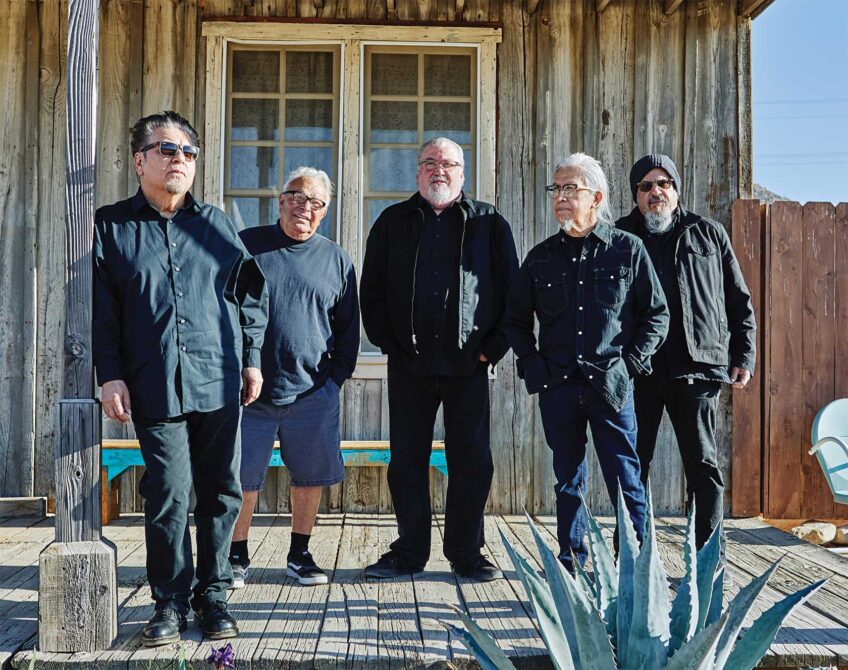Legendary South African vocal group Ladysmith Black Mambazo comes to Sanders Theatre

Ladysmith Black Mambazo started with a dream. Joseph Shabalala, the South African vocal group’s late founder, was on a quest to refine isicathamiya, a musical genre that emerged from apartheid-era mines. One night, he dreamt his grandmother told him to join forces with his second cousin Albert Mazibuko and his brother if he wanted to succeed. So, he did.
The result has been a six-decades-long career during which Ladysmith Black Mambazo, named after the founding members’ hometown, has won five Grammys, collaborated with renowned artists and appeared on global stages.
The now nine-person group returns to Massachusetts for a show at the Sanders Theatre in Cambridge on Feb. 17, performing from its expansive repertoire, including titles from its latest album, “Soothe My Soul,” a deeply spiritual collection.
Mazibuko, the only remaining member from Ladysmith Black Mambazo’s founding days, spoke to the Banner about the group’s legacy and aspirations.
The interview has been edited for clarity and length.
Banner: Ladysmith Black Mambazo’s music is rooted in resilience and spirituality. How has your sound evolved over time?
Albert Mazibuko: Our music hasn’t changed, but the message changes with time. With our music, we are always trying to address what is happening in our life and around us. … The way that Joseph introduced this kind of singing to us, it’s very unique and no one [has] ever done it. That’s why we stick with it. It is going to be a heritage of South Africa.
Your songs are a complex mix of melody and harmony, which seems difficult to do a capella. Walk me through your creative process.
Anyone can [suggest] a song. Before, it was Joseph who was writing the songs, and his songs are very good. But now, we have four sons of Joseph in the group, and three of them are very talented when it comes to writing music. So now they are writing music.
What we do is really challenging. It needs somebody who’s going to be really patient. We have to listen to one another, and we practice all the time. We don’t just rehearse because we have a gig coming up or recordings; we just want to keep ourselves in shape.
Over the years, you have collaborated with legendary artists such as Dolly Parton, Paul Simon and Nigerian icon Burna Boy. How do you choose your partnerships?
I remember when we got a message that Michael Jackson wanted to collaborate with us, and that was very exciting. We like to collaborate with anyone that has got a talent of singing, because sometimes we hear very talented musicians, but some of their songs are not peaceful songs. Maybe some people are singing about [hardships]. We like to collaborate with them because if we do that, we hope that we can encourage them, and they can sing peaceful music.
What kind of legacy do you hope to leave?
When we talk to people after the shows, they say our music gives them new hope in life. They see the world differently — that it is not as bad as it might look. I think that people can take from us the message that anything is possible as long as they get together, listen to one another and support each other.
African music has recently found a massive global audience. What does it mean to be a part of the movement bringing South African music to the world?
That just tells me that the music is not in our lives by mistake; it’s needed. It takes you away from this troubled world, and it puts you in a very beautiful world and you live happily. I’m happy about it, especially when I see that the music from Africa is all over the world.






